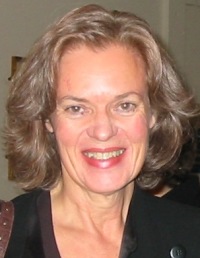
Extract 1: from a novel in progress
A Book for All and None
And so he had come home again. And here he was now, with his life in all its complex action and inaction restored to him. The house, the library, the garden. The ghosts. Chief among these were perhaps the ghosts of himself, the various versions of what he was, accumulating in height and years and there when he turned too quickly. The steps that he stepped in were his own, the paths through the air – he had already made them. His likenesses, more or less him to one degree or another, accompanied him. He saw himself through the glass of time, first brightly and then darkly, diminishing in size and power right back through his babyhood, through the embrace of his parents, back through into the darkness, where he was nothing but a jot.
The other ghosts made themselves manifest only irregularly. A hand. An eye. the sense of a movement at the edge, just out of sight, just out of the main stream. He could have existed on an island. He went down to the town from time to time to fetch provisions. The only things that punctuated his days were the letters from Beatrice. One then two then three. He found he was waking up in the morning calculating the likelihood that he would hear from her. Whether he did or he did not was hardly relevant. The anticipation stretched him tight over the whole of his existence. He was stretched so fine you could have held him up to the light and seen through him. What would you have seen? Attenuated bone and muscle. The feathery endings of tendons. The gelatinous stuff of his eye peering into darkness. The glutinous convolutions of his grey brain beating, beating, outdone only by the persistent mechanism of his heart.
Extract 2: from a novel in progress
A Book for All and None
All the images I possessed of Nietzsche were carefully interleaved between plain white sheets of A4 paper. On the top was Munch's painting of him, the solitary and contemplative figure, rather clerical in his dark coat and with his hands folded. He is standing on the slope of a hill, a road it looks like, and over his shoulder way down below him is a tiny cluster of buildings, a castle, a church even, or perhaps the angular turret of a European university. There's a lake too, although the perspective is such that it could be hills, your eye moves from one interpretation to the other, it can never be at rest.
I took out the second image, inserted in a clear plastic folder so that no inadvertent finger mark should mar its pristine beauty and its clarity. I handed the picture to Beatrice Kopus who looked at it closely then held it away from her and smiled, a beautiful smile, a joyful smile, that lit up and encompassed everything in the room.
She is very beautiful. Was she a lover of Nietzsche's?
I took the image back and looked at it. Louise von Salomé tilted her head away from me and looked out into a distance I had no access to. Her neck was bare, a tissue of something gauzy was flung over her shoulders. Her hair, very thick and long and wavy, was thrust up in a bun at the base of her skull from which wisps and tentacles cascaded into the sepia void of the background. It seemed for one moment as though she turned and looked at me. No doubt I was superimposing another image in my mind and that is what created the illusion. But the power of her look, the plea almost, set my heart beating so violently that for a minute I could not speak.